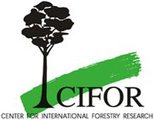The Center for International Forestry Research (CIFOR) released a report examining data needs for estimating the contribution of charcoal production and consumption to greenhouse gas (GHG) emissions.
The study focuses on Zambia but notes that charcoal is used for cooking by millions of people across Africa.
 12 January 2015: The Center for International Forestry Research (CIFOR) released a report examining data needs for estimating the contribution of charcoal production and consumption to greenhouse gas (GHG) emissions. The study focuses on Zambia but notes that charcoal is used for cooking by millions of people across Africa.
12 January 2015: The Center for International Forestry Research (CIFOR) released a report examining data needs for estimating the contribution of charcoal production and consumption to greenhouse gas (GHG) emissions. The study focuses on Zambia but notes that charcoal is used for cooking by millions of people across Africa.
Overall, the research finds that many challenges remain with regards to gathering sufficient data to link charcoal to REDD+. In particular, remote sensing can seldom be used because of the nature of dry forests, the amount of carbon released when coal is burned varies depending on the type of wood and method for drying, and unlicensed charcoal production is common and difficult to account for.
The report, ‘Zambia Country Profile – monitoring reporting and verification for REDD+,’ concludes that to address these challenges, increased on-the-ground monitoring will be required. Furthermore, while emerging technologies, such as the use of drones and improved remote sensing tools may prove useful in the future, the report notes that such technologies are currently not feasible or easily accessible. The report stresses that charcoal production should be considered in REDD+ in Zambia as it may prove to be a significant source of GHG emissions and continues to put pressure on remaining forests. CIFOR is part of the CGIAR Consortium. [CIFOR Press Release] [Publication: Zambia Country Profile – monitoring reporting and verification for REDD+]